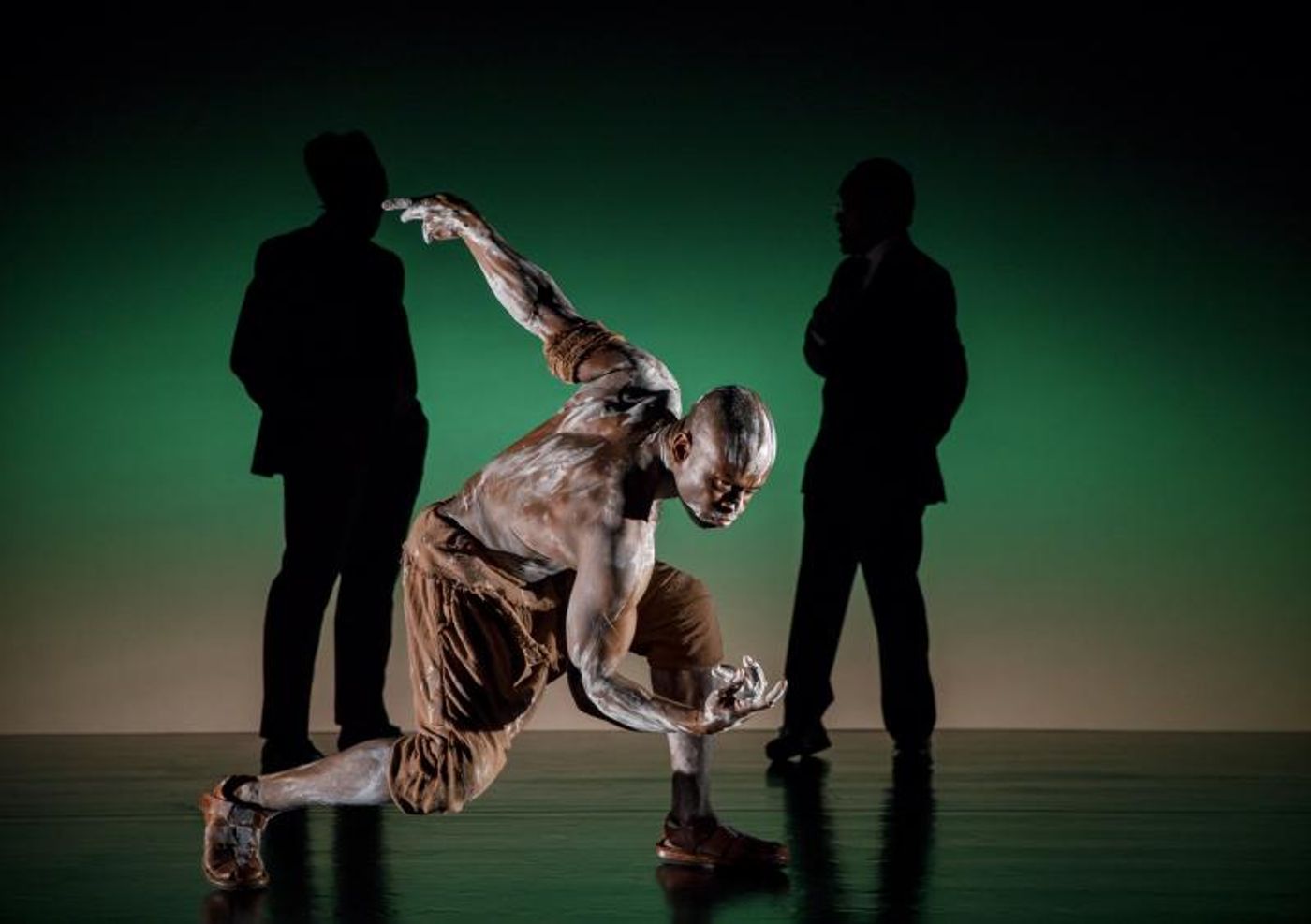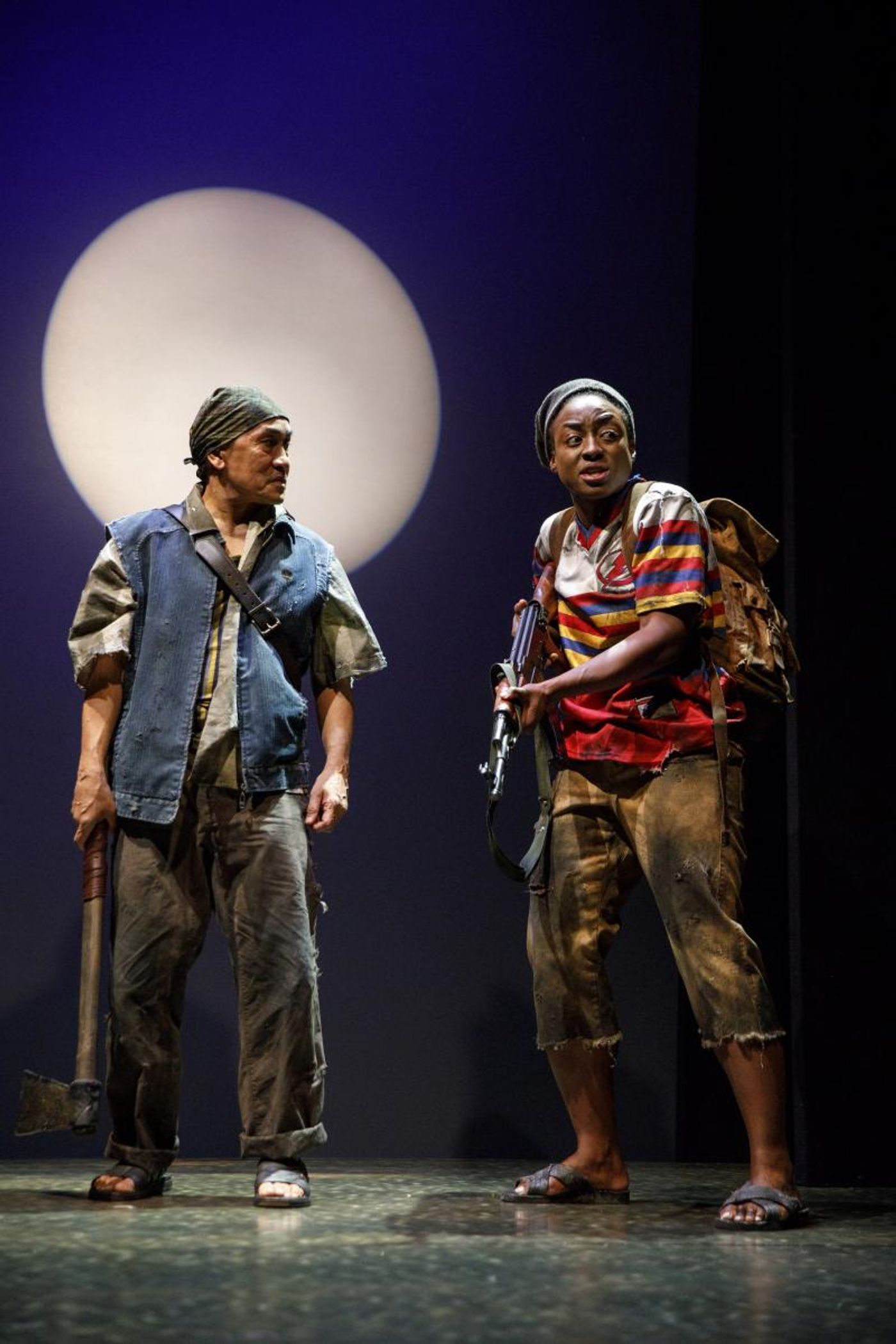Review: Lynn Nottage's Ivory Trade Drama MLIMA'S TALE Honors The Beauty of The Beast
"When I was young I was taught by my grandmother to listen to the night," says the title character of Lynn Nottage's nobly lyrical drama of the ivory trade, MLIMA'S TALE.

"She'd say you must listen with your entire body, feel how the earth shifts when there's the slightest disruption, because how you listen can mean the difference between life and death."
With his lean, muscular physique suggesting the massive size and elegant curves of "big tusker" elephant hesitantly surveying the evening landscape of his savannah terrain, Sahr Ngaujah gives a captivating performance, poetic in both movement and emotion.
His opening soliloquy, recalling the elders who taught him, the onetime enemy who became his closest companion ("We fought until we grew so tired that our only recourse was to become good friends.") and the anguish felt when those of his community were slain by humans.
Before he's done, Mlima, too, is slain; shot by one of two Somali poachers who want to sell his perfectly shaped tusks to feed their families and escape poverty.
It's said that, without a proper burial, elephants will haunt their killers forever. Mlima indeed remains a presence throughout director Jo Bonney's graceful Public Theater production of the 80-minute play, symbolically leaving a bit of himself behind to everyone who tries to profit from his death.

(Photo: Joan Marcus)
Those profiteers are played by Ito Aghayere, Jojo Gonzalez and Kevin Mambo, who spend the 80-minute play partaking in a series of two-person scenes - sometimes crossing over gender and racial lines in the process - where the ivory remains of Mlima find their way into the hands of individuals such as a park official, a government higher-up, a smuggler, a collector, an ivory carver and an art dealer.
Unlike the stage characters, the audience never sees Mlima's tusks. We see Ngaujah representing them. So as each new person has a lessened awareness of the living soul behind the objectified body part they just acquired, those in their theatre seats may sense an intensified awareness of the beauty of the beast.
Reader Reviews
Powered by
|
Videos

